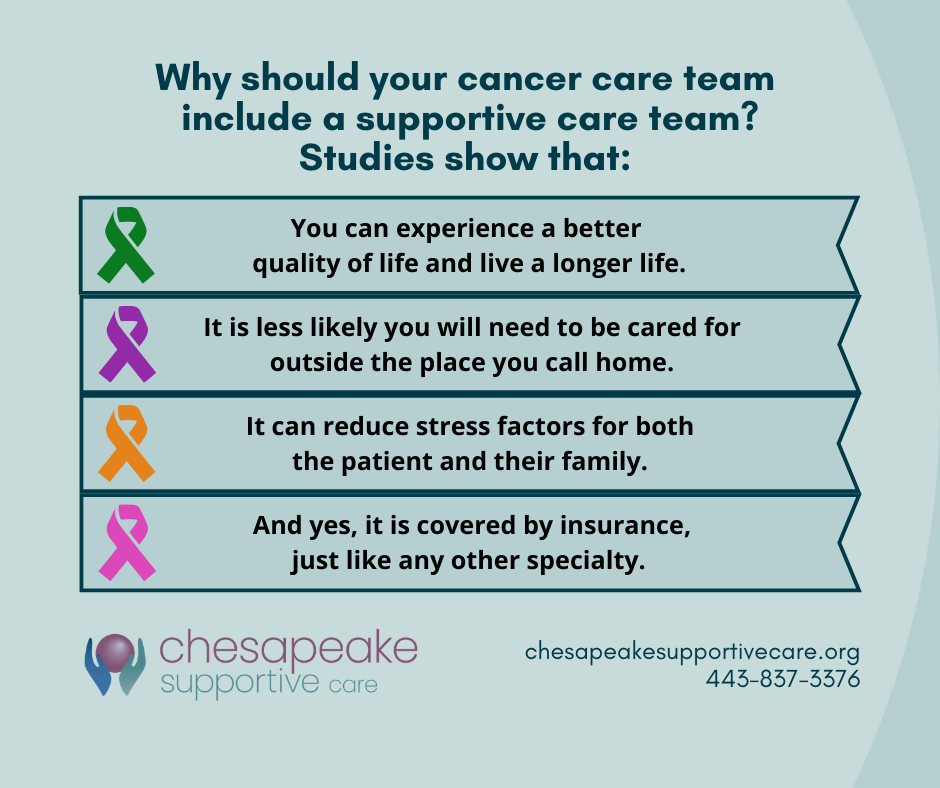
In 2017, both the National Comprehensive Cancer Network and the American Society of Clinical Oncology recommended that any patient newly diagnosed with late-stage cancer should be referred to palliative care, or supportive care, at time of diagnosis. It is an important statement as it encourages hope based on science: Cancer patients who are also supportive care patients are more likely to experience a better quality of life and to live a longer life.
There have been many recent studies that demonstrate the benefits of including supportive care as part of a cancer treatment plan. The results include patients demonstrating fewer signs of depression, reducing stress factors for both the patient and their family, improved length of survival and even lessening the risk of admission to an acute care facility.
I have been fortunate to partner with many oncologists as a supportive care physician over the last 15 years. Some of those patients who I first met as stage four cancer patients have been with me for seven, eight, even nine years.
Being a supportive care patient means you have someone to ally with you as you work with oncologists, radiologists, chemotherapists, and others to decide on the risk vs. benefits of treatments and interventions. There are a lot of moving parts in cancer care. There are a lot of symptoms, from nausea and pain to anxiety and depression.
A supportive care team may include a physician or nurse practitioner, a registered nurse and a social worker who are focused on patient-centered care. Supportive care providers spend on average 70 minutes with each patient – that amount of time is essential to assess the patient’s needs. Before and after that visit, they are working with the patient’s healthcare teams, coordinating care and medications.
I have been fortunate to partner with many oncologists as a supportive care physician over the last 15 years. Some of those patients who I first met as stage four cancer patients have been with me for seven, eight, even nine years.
Uniquely, supportive care team members focus their visits with patients on determining the patient’s goals of care and helping patients align their treatment choices to their goals of care as well as working with the patient to help communicate that to their other providers.
If you have been recently diagnosed with cancer, make sure supportive care is part of your treatment plan. And yes, it is covered by insurance, just like your oncologist, radiologist, cardiologist or any other medical specialty.
To learn more about the benefits of supportive care, watch the video below.



